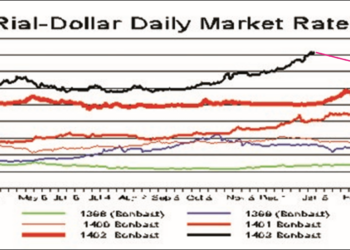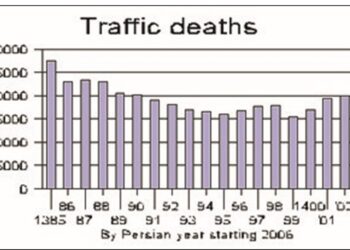Iran has asked South Korea to increase the interest rate on billions of dollars worth of won trapped in two government-owned banks, a Korean central bank source told Reuters last Thursday.
Iran cannot repatriate the money because of US banking restrictions. Korean oil importers paid won for Iranian crude into the two Korean bank accounts. The Islamic Republic then buys South Korean products with the won.
“Iran considers interest rates of 0.1 percent are too low and has requested to raise them or move the money to other banks,” a Bank of Korea source told Reuters by telephone, but gave no other details.
Disagreement over the accounts could cause payment delays for South Korean firms, domestic media have said, although it is unlikely that Tehran, whose major interest is to keep crude flowing to top consumers, would do anything punishing that would offend Korean customers.
South Korean refiners plan to resume buying crude from Iran in September after a two-month hiatus due to a European Union tanker insurance ban that made shipping oil difficult.
Quoting industry sources, South Korea’s Yonhap news agency said Iran wanted interest rates of around 3 percent a year, which is usually paid for a six-month deposit in Korea. If talks with its banks failed, Iran was considering switching to two other banks, NH Nonghyup and Korea Eximbank.
Officials at both NH Nonghyup, a bank funded by a farmers group, and Korea Eximbank, which is owned by the Korean government, said no request had been made by Iran, nor had they considered such a scenario.
“The risks are higher than the payback,” one official said. “Even if we have such accounts, we can only offer 0.1 percent as it is not a certain-term deposit account, but an account where you can withdraw money whenever you want.”
Holding deposits for the Central Bank of Iran carries an implied risk for any bank. If the United States were to remove its waiver allowing South Korea to buy Iranian crude and not face sanctions, the financial institution that executes oil transactions could be sanctioned.
In the first six months of 2012, South Korea’s imports of crude from Iran stood at 190,000 barrels per day (bpd), down 17 percent on the year.
While it is not clear how much cash is currently held in the two Korean bank accounts, Iran’s total trade surplus with Korea in 2011 and the first half of 2012 was $7.4 billion, data from the Korea International Trade Association (KITA) shows.
South Korea in June imposed curbs on its exports to Iran — mainly steel, cars and electronics — to reduce its risk of payment defaults under the sanctions. The government estimated around 2,000 Korean firms export goods to Iran.













